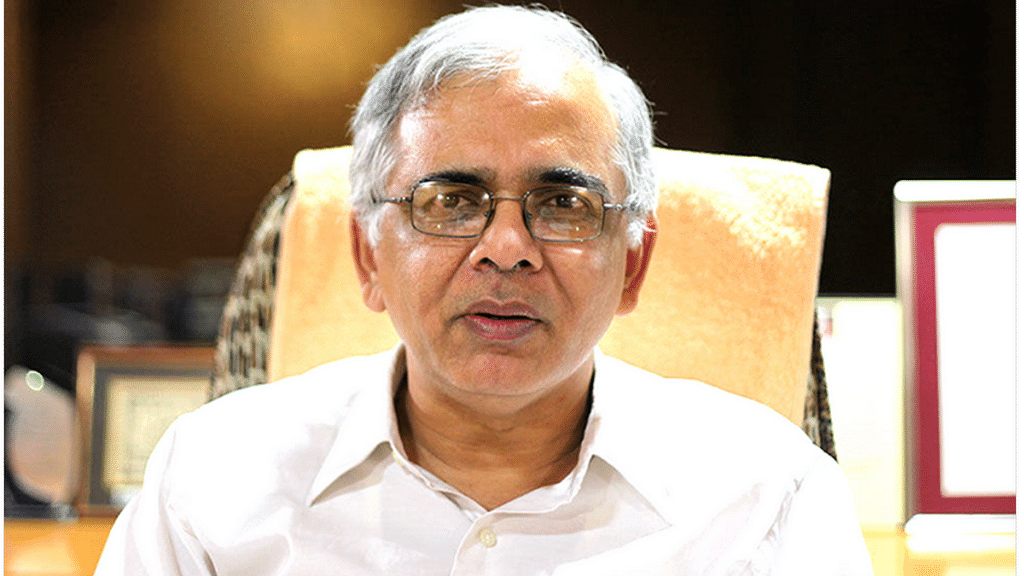New Delhi: The mathematical supermodel being used to forecast the dynamics of the Covid-19 pandemic in India has been making the correct predictions, said Shekhar Mande, director general at the Council of Scientific and Industrial Research (CSIR). The model has predicted that nearly 90 crore people may have already been exposed to the SARS-CoV-2 virus.
Speaking to ThePrint’s Editor-in-Chief Shekhar Gupta during a virtual Off The Cuff interaction Tuesday, Mande lauded the efforts of the team involved in generating the model.
A committee set up by the Department of Science and Technology (DST) was tasked with arriving at a ‘Covid-19 India National Supermodel’ earlier this year. It included M. Vidyasagar of IIT Hyderabad, Gagandeep Kang of CMC Vellore, Biman Bagchi of the Indian Institute of Science in Bengaluru, Arup Bose and Sankar Paul of the Indian Statistical Institute, Kolkata, and Lt Gen. Madhuri Kanitkar from the Ministry of Defence.
“I would believe that whatever predictions they’re making might be right. That means the virus is washing through our population,” Mande said.
He added that serosurvey results from a study conducted by scientists at the Tata Institute of Fundamental Research (TIFR) also confirmed that more than 50 per cent of the people residing in Dharavi — Asia’s largest slum — had Covid-19 antibodies. However, fatalities in the area has remained much lower than what was expected.
Mande also pointed out how many had assumed that an outbreak in Dharavi would be “a catastrophe”. “But thanks to whatever powers be, that did not happen. We should really be relieved that the kind of catastrophe that was expected did not happen in Dharavi.”
Also read: Covid vaccines will be equally effective despite mutation of coronavirus, says CSIR chief
‘Hygiene hypothesis’
Commenting on why India and other low-income countries were recording low mortalities due to Covid-19, Mande said the “hygiene hypothesis” could be behind it. The hygiene hypothesis, he explained, proposes that populations living in poor hygienic conditions are exposed to a high number of pathogens which train their immune systems to fight new infections.
“In high income countries, as hygiene conditions improve, the burden of such communicable diseases, that are spread by pathogens, reduces. Instead, the burden of autoimmune diseases — such as diabetes, asthma and psoriasis — increases,” Mande added.
A study authored by Mande and his team, which will be published in the journal Current Science, also delves on how this could be one of the factors that can explain why countries with low GDP may have lower Covid-19 mortality rates.
He, however, cautioned, “By no means are we telling people that you should actually move to a worse hygiene. What we are saying is that the body’s immune system is not ready to look at any new disease that comes in. We need to continuously train our immunity for that.”
Mande also said how the human gut — home to a large colony of microbes — may hold the key to training our immune system.
“Every day, there is some exciting finding coming out which shows that everything — including human behaviour — is dictated by the bacterial population that lives in our gut,” Mande said.
His study, however, did not find a direct correlation between BCG vaccination, aimed at preventing tuberculosis outbreaks, and lower fatalities. Several studies, since the pandemic began, have proposed that countries with universal BCG vaccination programmes have had lower Covid-19 infections and deaths, he said.
Mande noted that countries without BCG vaccinations programmes have also had a high incidence of autoimmune diseases — but the two factors were not directly linked to each other.
“Therefore, that correlation (between BCG vaccinations and low deaths rates) might be showing up because there is higher incidence of autoimmune disorders in high income countries,” Mande said.
‘Feluda’ — CSIR’s success story
Mande said that the 37 CSIR labs across India have formulated a Covid-19 mitigation strategy based on five different verticals — surveillance, diagnostics, therapeutics, devices and supply chain modules.
One of the most talked about success stories of CSIR, amid the Covid-19 pandemic, has been Feluda — a low cost, paper-based Covid-19 test that can give results within 45 minutes.
Feluda is based on the CRISPR-Cas technology that enables researchers to edit genetic codes. Mande said that the CSIR team had already been working on a CRISPR-based test for sickle cell anaemia. When the pandemic began, they realised that this test could be repurposed to create at-home Covid-19 tests, added Mande.
The test is now being commercialised by the Tata Group, and is already available on the Government’s e-Marketplace (GeM). The Tata Group has also applied for regulatory approvals for the test outside India.
Mande also said that the CSIR is currently very well placed financially, and was now looking to take up new research programmes that address global issues.
Speaking about delay in payment of fellowships for PhD scholars in India, Mande said the CSIR is working towards resolving the problem. “I fully sympathise with all research scholars. I was a research scholar myself once. It pains me that they don’t receive fellowship.”
“We’re also trying to digitise the process where every student will have a login. This will allow scholars to have access to all the records and see where the file is stuck,” he added.
Also read: CSIR plans clinical trials of antiviral Molnupiravir that is said to block Covid transmission
